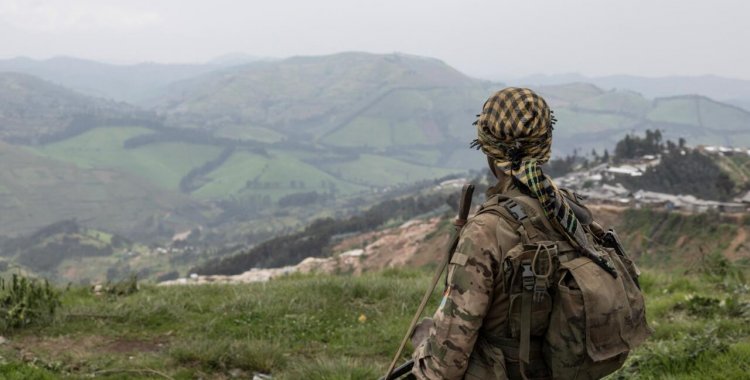“In accordance with the unilateral ceasefire declared on 22 February 2025, and in support of peace initiatives aimed at fostering conditions conducive to political dialogue to address the root causes of the conflict in eastern DR Congo, AFC-M23 has decided to move its forces from the town of Walikale [in North Kivu province] and its surroundings,” the rebel group’s spokesperson, Lawrence Kanyuka, announced on the social network X.
“We call on the inhabitants of Walikale and their community leaders to take the necessary measures to ensure the safety and protection of the civilian population and their property during this transition,” Kanyuka added.
M23 took control of Walikale, the administrative centre of the Walikale territory and a region rich in minerals, especially gold, on Wednesday evening.
Walikale, which has a population of around 15,000, is located just over 120 kilometres northwest of Goma, the capital of North Kivu, which was captured by the M23 in January.
The rebel spokesman warned, however, that “any provocation or new attacks” by the Congolese army and its allies “against the civilian population, including the liberated areas” and their “positions, will result in an automatic reversal of this decision”.
Kanyuka stressed that the AFC-M23 “remains committed” to a peaceful resolution of the conflict and reiterated its commitment to “protect and defend the civilian population, as well as their positions”.
The rebels took Walikale the day after a direct peace dialogue between the DR Congo and the M23 began in Angola, the country mediating the conflict, but this did not materialise due to the cancellation of the M23, following the imposition of European Union sanctions against some of its leaders.
The M23, supported by Rwanda - according to the United Nations (UN) and countries such as the United States of America, Germany and France - controls numerous territories in the east of the DR Congo, including the capitals of the provinces of North and South Kivu, which border Rwanda and are rich in minerals such as gold and coltan, essential for the technology industry and the manufacture of mobile phones.
Since the escalation of the conflict in Haneiro, more than 850,000 people have been displaced in South Kivu alone, according to the United Nations Children's Fund (UNICEF).
In addition, the fighting that broke out in Goma and its surroundings has left more than 8,500 dead, according to the Congolese Minister of Public Health, Samuel Roger Kamba, at the end of February.
The M23, a group made up mainly of Tutsis who were victims of the 1994 Rwandan genocide, resumed armed activity in this province in November 2021 with lightning attacks against the Congolese army. Since then, it has advanced on several fronts, raising fears of a possible regional war.
Since 1998, eastern DR Congo has been mired in a conflict fueled by rebel militias and the army, despite the presence of the UN peacekeeping mission (MONUSCO).







